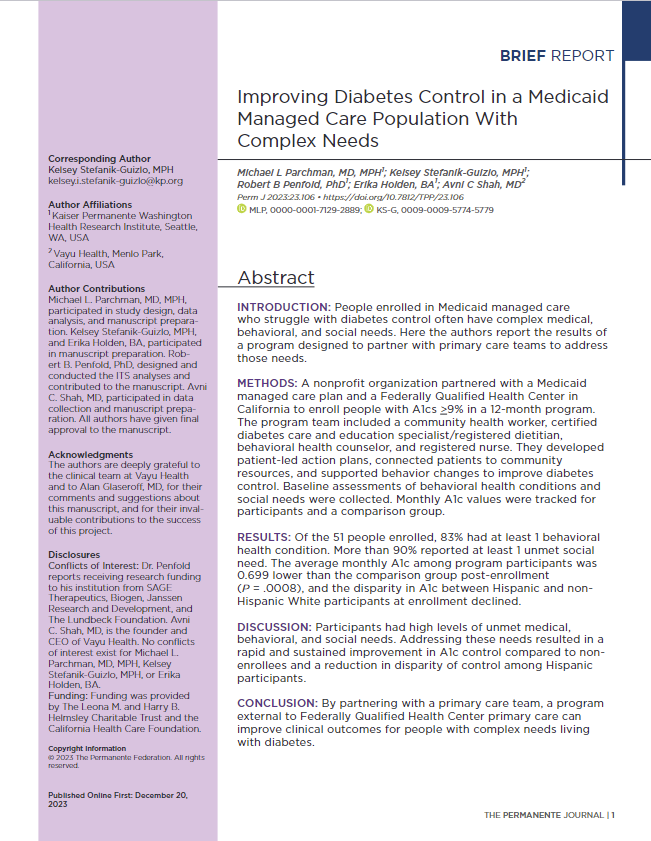Headline
A primary care-based integrated care team — including a community health worker (CHW), registered nurse (RN), certified diabetes care and education specialist (CDCES)/registered dietician (RD) and behavioral health counselor — supports patients with type 1 or type 2 diabetes in reducing A1c levels.
Context
Unmet social and behavioral health needs can exacerbate risk factors related to uncontrolled diabetes, a condition that disproportionately impacts communities of color and people with lower incomes.
Vayu Health, a California-based nonprofit organization, partnered with Health Net, a Medicaid managed care plan, and Ampla Health, a federally qualified health center, to improve diabetes management among a subset of Health Net’s Medicaid members. Together, the organizations implemented a primary care-based intervention offering integrated care to patients with type 1 or type 2 diabetes and an A1c ≥ 9%. This involved connecting patients to an interdisciplinary care team, which included an RN, a CHW embedded within the primary care clinic, and a CDCES/RD and behavioral health counselor who each met with patients virtually. The team worked closely with patients to develop personalized care plans focused on improving glycemic control and addressing other underlying health, behavioral health, and social needs.
Findings
The researchers compared outcomes for 51 program-enrolled patients with a comparison group of 477 patients, and found that post-enrollment average monthly A1c among program patients was 0.699 lower than the comparison group. Additionally, one-year post-enrollment, the study found a significant decrease in disparities in A1c control between Hispanic and non-Hispanic program patients.
Takeaways
Despite limitations, such as a small sample size and limited control for confounding variables, this research provides promising evidence consistent with a substantial body of literature demonstrating the benefits of integrated care across patient outcomes. The application of this care model to diabetes management is particularly notable given the condition's widespread prevalence and its disproportionate impact across race, class, and income levels. The program also underscores the potential for cross-sector partnerships in developing innovative care models, with the payer, provider, and a community-based nonprofit each playing crucial roles in the implementation of this program.

